SONA Connect recently asked six C-level executives in the region how their businesses have been upended due to the coronavirus pandemic. Their overwhelming response? Everything’s changed.
Coronavirus has — and continues to — transform workplaces, from how executives communicate to how they source new talent. But each business also faces unique obstacles brought on by COVID-19. Here, executives from six different industries talk about their biggest challenges and offer advice for navigating a path forward.
“We had to decide to ask ourselves pretty early on, ‘What does a pivot look like?’”
—Sandy O’Hearen, Chief Financial Officer, Tribeca Events
As COVID-19 gained steam last spring — just before the Tribeca Film Festival was scheduled to take place — Sandy O’Hearen, CFO of Tribeca Events, and her management team knew they’d have to abruptly cancel the April festival, which hosts over 600 screenings with approximately 150,000 attendees. “We had to decide to ask ourselves pretty early on, ‘What does a pivot look like?’” says O’Hearen. “How could we have a successful year without an in-person event?”
Contrary to what some might think, the Tribeca Team is a relatively small group (the permanent staff includes about 50 employees), and O’Hearen says each team member was tasked with contributing ideas on what a virtual festival might look like. “We don’t just sit a few executives around a boardroom table and decide what to do,” she says. “We toss it to the whole team and let those ideas bubble up.”
Her best brainstorming tip? “We encourage each other to come up with the biggest, never-been-done-before ideas that we can,” she says. “And then eventually they might be simmered down to what we can legitimately pull off.”
In the end, the team decided to launch one of the first pop-up drive-in series across the country, featuring movie screenings with partner AT&T at the Rose Bowl in Pasadena, AT&T Dallas Stadium, Orchard Beach in New York and Nickerson Beach in New York. “Now, as the drive-in craze picks up steam, it doesn’t sound very innovative, but it certainly was several months ago,” she says. The series employed local production staffers and partnered with local restaurants that had been impacted by the lockdown.
With the successful events under their belt, O’Hearen’s team now faces a second dilemma: how to plan for a 2021 event (the festival has been pushed to June) with many unknowns still surrounding the virus. “Right now, we’re preparing for a hybrid event that could pivot to all-virtual if it had to,” she said. “Basically, we’re preparing for the worst- and best-case scenarios. That’s really all you can do in this current climate.”
“We have more work than we can handle, which won’t help us in the long run.”
Jeff Nicklaus, President, JN Service Solutions
Some executives might be slightly envious of Jeff Nicklaus, whose firm has more business than it can handle at the moment. “If I had another 100 associates right now, I would have work for them,” says Nicklaus, whose firm — a national installation company — sets up shelving and merchandise for big box retailers.
This year has been the company’s most challenging for a few different reasons, according to Nicklaus. In March, when COVID shut down most of the company’s retail clients, Nicklaus’ associates were out of work for about a month. Then, about six weeks into COVID, “the DIY trend exploded,” and all kinds of retailers — ranging from Jo-Ann Fabrics to Bed Bath & Beyond —were knocking at Nicklaus’ door looking for support to re-do their warehouses and showrooms.
“Now our biggest challenge is that we can’t hire enough associates because many people want to stay home,” he says, noting that the company has grown from 75 to 140 associates since the onset of COVID. “We have more work than we can handle, which won’t help us in the long run.”
As demand for new hires skyrockets, so do recruiting costs: Nicklaus estimates he’ll shell out $250,000 in recruiting fees this year, compared to $20,000 to $30,000 in years’ past.
The company’s travel budget is skyrocketing, too. JN’s associates travel throughout the country to complete their work and previously shared hotel rooms and flew on connecting flights to save on costs. Now, JN is paying for them to stay in single rooms and fly on direct flights. “This isn’t something that’s negotiable; if we want to keep our retention rates high, it’s just something we have to do,” he says.
While Nicklaus continues to focus intently on recruiting, he stresses the importance of keeping current associates happy as well. “I’m really big on over-communicating in a time of a crisis,” he says. “I’m very honest with my associates as to where the company is and what management is doing to ensure that we’re going to be there for them tomorrow.”
“It’s been a roller coaster over the past six months with no real end in sight”
Ronni Knight, RCM Health Information Management
While employee burnout is a concern among employers in any environment, it’s even more prevalent during the pandemic, says Ronni Knight, director of coding operations for RCM Health Information Management, a division of RCM Health Care Services. In the past few months, Knight says, more employees have expressed concerns about additional stressors, including the challenges of remote working alongside school-age children, lack of child care, and other issues that complicate work/life balance. “While of course we want to be accommodating and give our employees as much help as possible as we work through these issues, at the end of the day, you are still in charge of running a business and some needs have to be met on that end, too,” she says. “It’s been a roller coaster over the past six months with no real end in sight.”
Another big challenge Knight has witnessed among her colleagues in the healthcare facilities with whom her company partners: “Those working in facilities that took government money to help in the short-term are now faced with loans that have come due,” she says. Many of those facilities are rural hospitals that were already in “crisis mode” financially before the pandemic hit, Knight says, and are serving less-populated counties where patients have nowhere else to go for care.
“That leaves us with the question, ‘How do we care for those in already underserved areas. . .and who will bear the financial burdens yet to come?’” she asks. Only time will tell, she says.
“My advice is to take a breath and realize the information is fluid”
Christopher Santomassimo, partner, Santomassimo Davis LLP
When the staff at Santomassimo Davis suddenly was forced to work entirely remotely at the onset of the pandemic, the firm didn’t miss a beat, according to Christopher Santomassimo, a partner at the firm. “Fortunately, our firm invested years ago in the ability to work remotely in the name of business continuity and flexibility, so our operations were not impacted,” he says.
“A bigger challenge for the firm was constantly staying abreast of the patchwork of federal, state and local measures and restrictions around the country, so that we can advise our clients on how to continue their businesses” amidst COVID-19, says Santomassimo, whose firm offers the Outside General Counsel™ solution, a fully outsourced virtual legal department and support staff, to companies for a fixed monthly fee. “These executive orders and other directives are often inconsistent and seemingly illogical, and often change with little notice. This is especially a concern for clients that have operations in multiple states.”
Santomassimo says he and his colleagues have spent considerable time processing and interpreting available information and regulations, often weighing in to tell clients what they would do in their circumstances. In addition, the firm has held free webinars to help clients navigate return-to-work amidst COVID.
“My advice is to take a breath and realize the information is fluid,” he says. “Also, work with your counsel to make informed decisions — and[1] document how you made them.”
“Separation brought us closer together and it built better relationships with our clients.”
George Ayub, President, Micronetbd
As an organization that is focused on assisting others with Cloud services, Micronetbd was, to a large extent, already set up to work remotely. But in the early stages of the COVID-19 lockdown, its executives found that some of its customers were not as prepared. “Many of our clients were just beginning to engage with Cloud services and the different perspective that comes with transitioning to the Cloud,” says George Ayub, president. “As a result, many of our projects had to be sped up and ferociously pursued in order to ensure that our clients had the capacity to continue operations outside of the customary convenience of the usual office setting.”
One thing that helped facilitate the process: virtual meetings. “Whether it was Zoom, WebEx or Google Meet, we were pressed into connecting with our clients via videoconferencing as never before,” Ayub says. “As a matter of fact, we found that these meetings and the increased frequency of them, helped us connect better and on a more personal level. It seems counter-intuitive, but this separation brought us closer together and it built better relationships with our clients.”
Another way the company adapted was the development of in-house video production. The company has leveraged video production in the form of training videos that are now part of its Salesforce and DocuSign development work. “Not only are we able to complete our projects faster, we now include branded training videos that ensure that clients, staff and management alike may learn to utilize our software customization in a fraction of the time of ordinary change management,” he says. “This move to video communications and other such process innovations have added to our unique impact with our clientele.”
“We’ve been challenged to adapt in order to move forward. This has meant finding new ways to help our customers and clients.”
Lynn Sarfati, CEO and Founder, Repêchage
For Repêchage, an international professional and consumer skin care company whose products are based on sustainable harvested seaweed, the shuttering — and subsequent re-openings — of spas and salons were a major challenge brought on by the pandemic, according to Lynn Sarfati, CEO and founder. In addition, trade shows, launch events and monthly educational classes were canceled throughout the spring, significantly decreasing the company’s ability to provide information to its clients, partners and the media. “We’ve been challenged to adapt in order to move forward,” she says. “This has meant finding new ways to help our customers and clients.”
The company pivoted into the virtual space, providing educational webinars and Facebook Live sessions to its clients, consumers, and partners, as well as partnering with esthetics organizations such as The Esthetician Connection. “These intensive, immersive sessions help fill the void created by canceled international trade shows and education by implementing open access to free education,” Sarfati says.
In addition, the company invited its spa and salon clients to participate in free education and business develop webinars and initiated the Repêchage Partners Program, an e-commerce program where partners could fulfill products after doing a virtual consultation while earning a commission, helping them stay in business during lockdown.
When it was time to reopen spas and salons, Sarfati worked with CIDESCO, the world’s international beauty therapy association, to create safety and sanitation protocols to be used globally throughout the crisis. In addition, it launched Repêchage Hand Sanitizers within weeks of the health crisis, making them available to the public at an affordable price. And, to protect both the esthetician and the client, Repêchage has introduced the Face Screen for Facials, a clear, polycarbonate shield providing an additional layer of safety for facial treatments. “This new equipment can help provide additional safety and hygiene going forward as well, beyond the current health crisis,” Sarfati says.


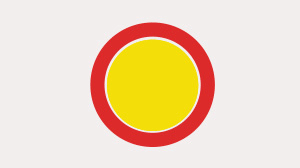

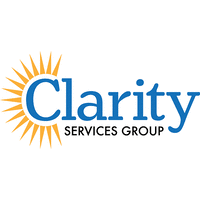
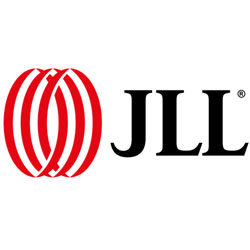
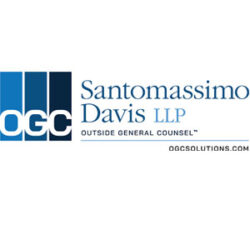
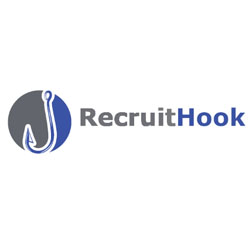
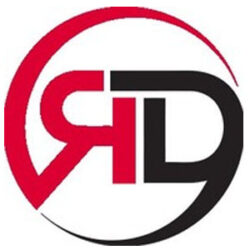
Comments are closed